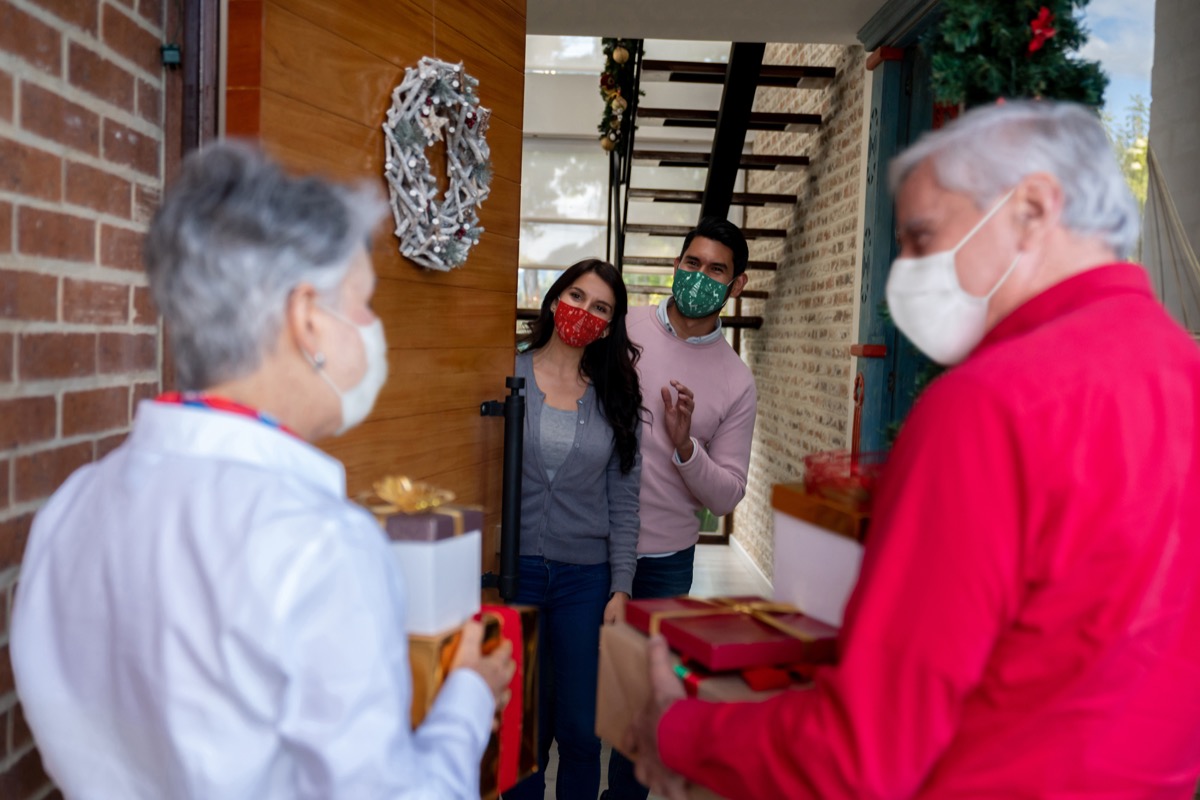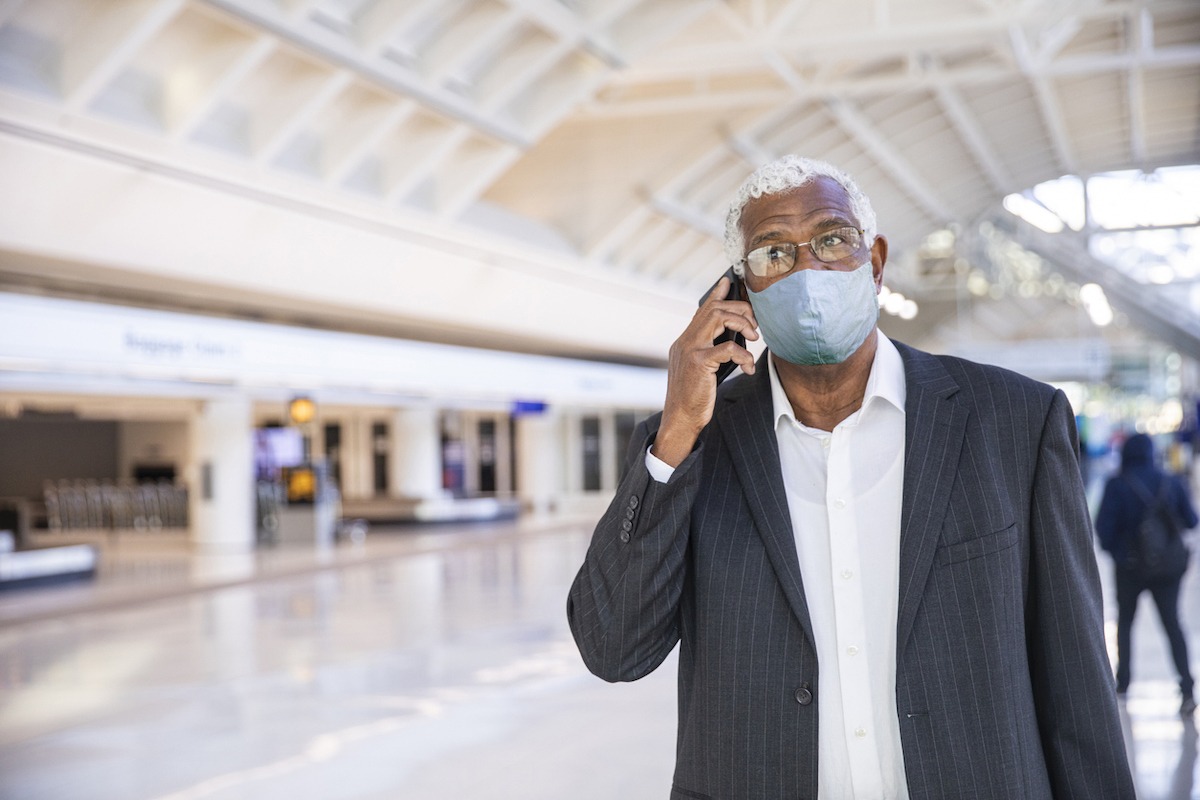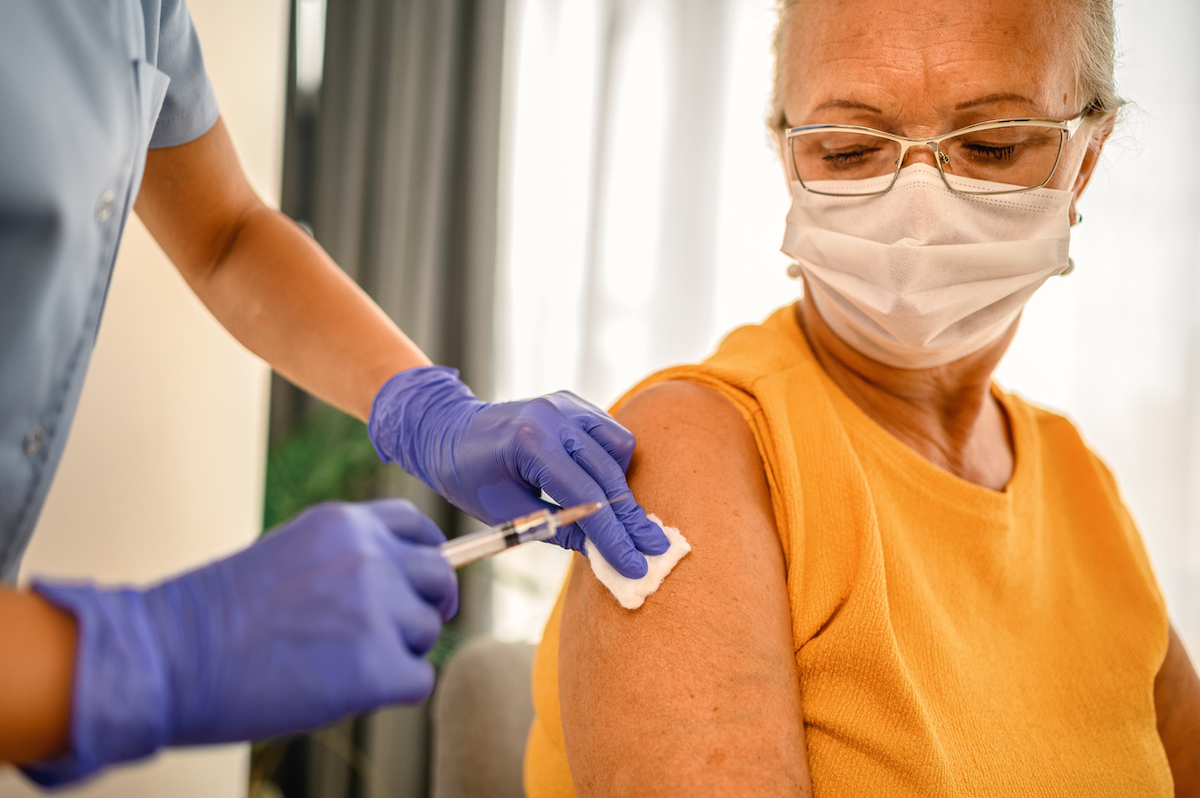As millions hit the road and skies to celebrate with their loved ones, some experts are ringing the alarm on the potential surge that such behavior could create—especially since we’re not through feeling the effects of the last holiday. “The virus transmission that took place during the Thanksgiving period has brought many health systems across this country to the brink of failure and we are still not yet finished seeing that impact,” John Brownstein, MD, chief innovation officer at Boston Children’s Hospital, told ABC News. But that’s not all. He also warned, “We will likely see more significant virus spread than any of the other holidays during the pandemic.” Read on to see why Brownstein is so worried, and for more on how you can keep yourself safe, check out If You Don’t Have This in Your Home, You’re at Higher Risk for COVID. Read the original article on Best Life. For weeks, top health officials have been warning that the back-t0-back spacing of Thanksgiving and Christmas could lay the groundwork for a terrible set of surges in coronavirus cases across the U.S. During an interview with the JAMA Network in early December, Anthony Fauci, MD, expressed that he was “really concerned” that the recently concluded Hanukkah holiday and the upcoming Christmas, Kwanzaa, and New Year’s celebrations could lead to dire public health outcomes—and in many ways, has the potential to be even worse than the Thanksgiving surge. “We are going to have more people traveling and instead of just having a weekend of the holiday, it’s well over a week,” Fauci said during the interview. “It’s Christmas and the week between Christmas and New Year’s [Eve] and then New Year’s [Day].” And for more regular COVID updates, sign up for our daily newsletter. With cases surging to new heights each day, medical experts now worry that mass travel will exacerbate the situation, putting a strain on a medical system that is already overwhelmed in most areas. “Layering in the December holiday travel and gatherings means we will have a third jump in this wave, or a surge-on-surge-on-surge,” Brownstein told ABC News. “Unfortunately, this increase will likely lead to catastrophic impacts on hospital capacity and the acceleration of terrible mortality milestones through February.” And for more on getting the most out of public health guidelines, check out If You’re Not Doing This, Your Mask Won’t Protect You, Study Says.ae0fcc31ae342fd3a1346ebb1f342fcb Besides the mounting cases, there’s more bad news: the Transportation Security Administration (TSA) reported that the weekend before Christmas saw its highest recorded number of travelers since the pandemic began, surpassing a million people each day for a three-day total of 3.2 million passengers, The Washington Post reports. Experts warn that this behavior will add to the perfect storm that could bring the pandemic well past the breaking point we’re already seeing—especially as it’s believed the more contagious U.K. variant of the virus has likely already landed within the U.S. “The sheer volume of mobility we are witnessing is well beyond what we saw over the Thanksgiving period,” Brownstein warned. “Travel plus the duration of this holiday period means that we will likely see more significant virus spread than any of the other holidays during the pandemic.” And for more on where the virus is looking its worst, check out This Is How Bad the COVID Outbreak Is in Your State. But as two effective vaccines are being administered, Fauci points out that there’s hope we can reach the end of the pandemic within the coming months if we follow the basic guidelines. He says the community effort will ultimately be what brings life back to normal. “There is light at the end of the tunnel. Within the next several months, vaccines are going to make a serious, important, positive impact,” Fauci told ABC News. “But until then, we really need to adhere to good, prudent public health practices.” And for more of the latest from Fauci, check out The One Vaccine Side Effect Dr. Fauci Is Worried About.



